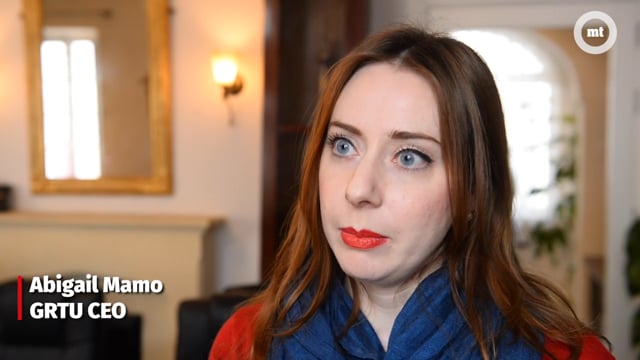[WATCH] 'Very unfair’ preferential tax system for foreign businesses a problem for local traders, GRTU survey finds
Most businesses saw an increase in sales last year, GRTU's 2018 Business Performance Survey shows, but 5% tax incentive system for foreigners needs to change


Local traders are complaining of the negative affect of Malta’s preferential tax system for foreign traders, who benefit from a reduced corporate income tax rate when setting up shop on the island.
The GRTU’s 2018 Business Performance Survey showed that while the majority – 51% - of retailers said their sales increased last year over 2017, unfair competition in the form of tax incentives for foreign traders is a problem.
Local companies are subject to a 35% corporate tax rate, but foreigners who open a business in Malta are refunded 30% of the income tax they pay, effectively only having to pay 5%.
GRTU CEO Abigail Mamo said the system was “very unfair”, and that the union would be issuing a number of budgetary proposals later on in the year on how this issue can be remedied.
“We are not against giving incentives to foreign investors in Malta. But there are ways and means of doing this without hurting local businesses. We need avoid treating our local ventures as second-class enterprises,” she said.
GRTU President Paul Abela said that while it made sense to offer tax incentives for certain types of foreign businesses, there had to be in place a system which could distinguish between firms of different sizes when making the preferential tax rate applicable.
“The situation is that if an Italian opens a retaurant in Valletta, he will pay just 5% tax. While this makes sense for large gaming companies which employ Maltese people, it doesn’t make sense that this also applies to businesses such as restaurants.” Abela said.
Sales generally up
The survey, which involved 250 respondents representing a cross-section of all businesses in Malta, showed that 51% saw their sales increase by 30% or more in 2018 compared to 2017, 32% said they remained the same, while sales decreased by 30% or more for 17% of traders.
Those who experienced increases mentioned the introduction of new services or product lines, the increase in population and consumption, better consumer spending power and an increased marketing budget as the top four reasons behind the rise in sales turnover.
Those who saw decreased sales cited increased local and foreign competition, higher costs, unfair competition, and online shopping as the top reasons behind this.
“The trend in terms of the negative sales results is that this is caused principally by local and foreign competition, unfair competition in the form of the so-called six-sevenths tax rate for foreign businesses, and competition from sellers who travel to Malta from Sicily and set up a makeshift stall from their van in the street,” Mamo said.
Most businesses said they didn’t experience a significant staff turnover – with only 20% saying the level of staff leaving or changing was continuous, very high or high – although certain sectors, such as catering, experienced more of this.
“Businesses are finding ways of retaining staff – either by increasing salaries, or other methods,” Mamo noted.
Encouraging rise in shops selling online
The portion of businesses which are also selling online has risen from 18% in 2017 to 30% last year. “This is encouraging,” Abela highlighted, “Also, 10% of businesses said that they planned to offer their products or services online in 2019, so we should keep seeing an improvement here.”
Of those businesses which do sell online, 73% of said that internet sales accounted for up to 10% of their total sales, while only 9% said they constituted more than 50%.
In terms of businesses that did not sell online, 33% said their products or services couldn’t be sold on the internet, 17% said their clients don’t make web purchases, while 7% respectively said that it was too difficult or time consuming to keep a website updated, and that deliveries were too complicated in Malta.
“5% said that they didn’t offer online shopping because they don’t like to show their prices to the competition,” Abela said, “I think this is silly and we hope we can convince these people to change their mentality.”
No decrease in Christmas turnover for majority
A total of 49% of businesses said they were either very satisfied or satisfied with sales over the festive period, 29% said they had neutral views on how they performed, while 21% were very dissatisfied or satisfied.
“By and large, around half said they were satisfied with their sales. Not all of them did well – but the majority did,” Abela underscored.
Compared to 2017, 21% said the festive season was worse in 2018, 53% said it remained the same and 26% said they had increased sales by 30% or more.
When it comes to what affected the positive sales during Christmas, most mentioned brand loyalty, spending power, special offers, social media marketing and more foreigners living in Malta.
Increased local competition, online shopping, traffic/lack of parking and unfair trading where the main factors mentioned as having affected sales negatively.


.png)



.jpg)
















